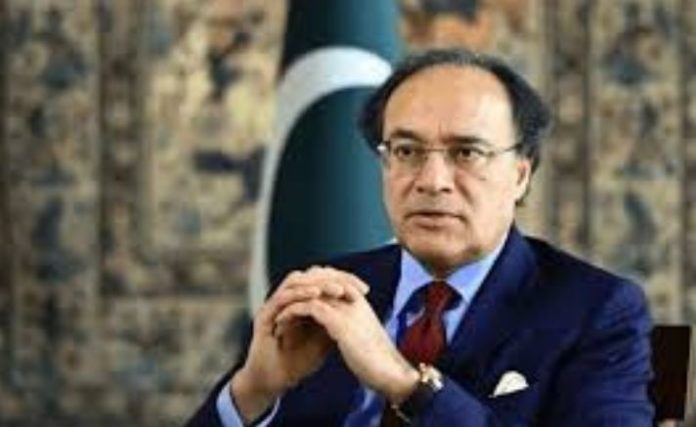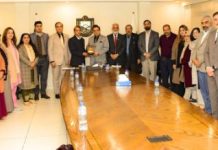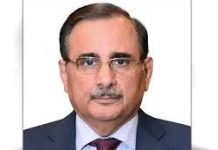ISLAMABAD, OCT 10 (APP/DNA): Minister for Finance and Revenue Senator Muhammad Aurangzeb on Friday reaffirmed the government’s commitment to creating a conducive environment for both foreign and local investors to promote trade and business growth in the country.
The minister virtually addressed a business session arranged for the visiting Saudi business delegation at the Overseas Investors Chamber of Commerce & Industry (OICCI) in Karachi.
The event was co-hosted by the OICCI and the Pakistan Business Council (PBC).
While expressing gratitude to the leadership of OICCI and PBC for the invitation, the minister said he regretted being unable to attend the event in person due to his imminent departure for Washington to participate in the annual meetings of the IMF and the World Bank.
Senator Aurangzeb recalled his recent interaction with Prince Mansour and members of the Saudi delegation at a luncheon hosted by the Prime Minister and reiterated that the Government of Pakistan firmly believes that the private sector must take the lead in driving the country’s economic growth, with the government’s role being to provide an enabling ecosystem.
Highlighting Pakistan’s improving macroeconomic indicators, the Finance Minister stated that macroeconomic stability has been restored, with all three major global rating agencies now aligned after a gap of several years.
He emphasized that stable financing rates, a steady foreign exchange regime, and adequate reserves have helped make capital and profit repatriation routine matters rather than challenges. Referring to the timely repayment of Pakistan’s US$500 million Eurobond on September 30.
The minister noted that while progress has been achieved on the stabilization front, the government is simultaneously pursuing structural reforms in taxation and energy sectors through a consultative process with the private sector.
He acknowledged the valuable input from both OICCI and PBC in shaping these reforms.
Senator Aurangzeb appreciated the strategic partnership developing with the Kingdom of Saudi Arabia, especially in learning from Saudi Arabia’s Vision 2030 and its remarkable success in execution. He underlined that Pakistan looks forward to strengthening export-led growth, identifying it as one of the key constraints and opportunities for sustainable development.
The Finance Minister informed the participants that the Federal Cabinet had, a day earlier, formally approved the historic Security Pact and termed this development a significant step in deepening the multifaceted ties between the two brotherly countries.
He said Pakistan currently enjoys a unique confluence of favorable factors, macroeconomic stability, and positive geopolitical tailwinds, with longstanding partners such as Saudi Arabia, China, and the United States engaging with us on trade and investment, emphasizing that the Saudi delegation’s visit is both timely and strategically important in unlocking new avenues of bilateral cooperation.
On the domestic front, Senator Aurangzeb said that the government is finalizing rapid damage assessments following recent floods and will prioritize the use of domestic resources for rescue and relief operations before considering external assistance for rehabilitation and reconstruction.
Regarding the ongoing engagement with the International Monetary Fund, the minister reaffirmed that talks with the IMF mission remain constructive, with only a few outstanding issues, and expressed optimism about reaching a staff-level agreement shortly during his upcoming meetings in Washington.
The minister also apprised the participants of two major reform tracks being personally led by the Prime Minister on taxation reforms and Pakistan’s digital transformation towards a cashless economy.
He pointed out that while Pakistan’s recorded economy stands at $411 billion, nearly half remains undocumented, implying that “the real size of our economy is close to a trillion dollars.”
He added that digitization and documentation will be pivotal in broadening the tax base and improving fiscal discipline.

















